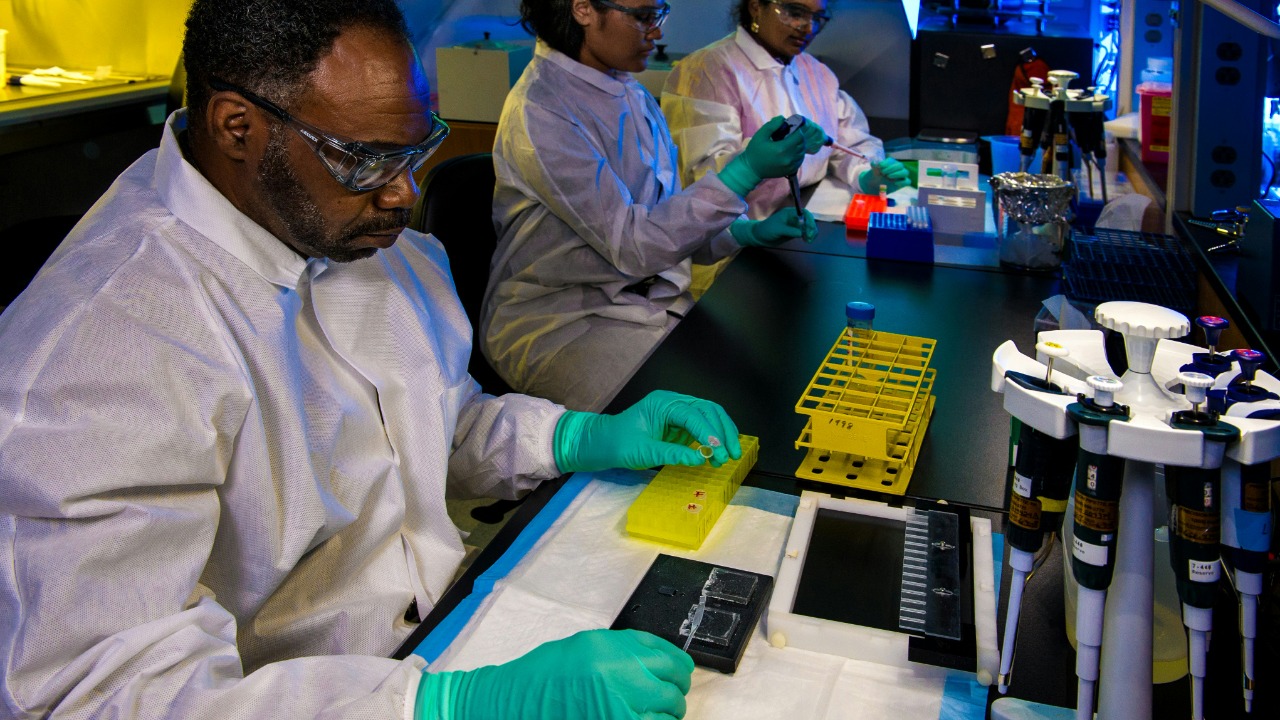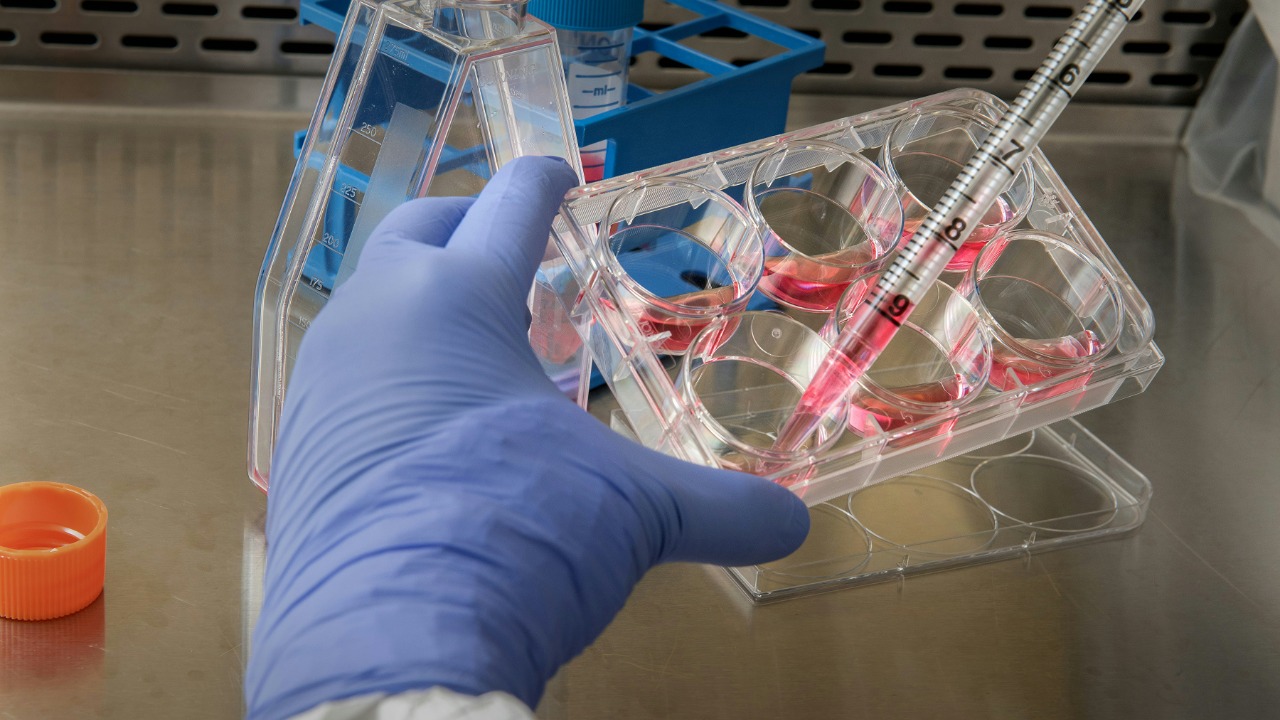
Gene editing is rapidly emerging as a transformative force across various sectors, from healthcare to agriculture. With advancements in technology and increasing investments, this field is poised for significant growth. Investors are keenly watching the developments in gene editing, recognizing the potential for substantial returns as the science continues to mature and find new applications.
Revolutionary Advancements in CRISPR Technology

The CRISPR-Cas9 technology has revolutionized gene editing by providing an efficient and precise tool for modifying DNA. This technology allows scientists to make specific changes to the genetic code, leading to breakthroughs in research and therapy development. Its simplicity and cost-effectiveness make it accessible for a wide range of applications, from correcting genetic defects to improving crops.
As CRISPR technology evolves, its potential applications are expanding. Scientists are exploring ways to use it for more complex genome editing, which could lead to treatments for a broader array of diseases. The continuous innovation in CRISPR tools is fueling investment opportunities, making it an attractive sector for those looking to capitalize on cutting-edge biotechnological advancements.
Expanding Applications in Agriculture

Gene editing is making significant strides in the agricultural sector, offering solutions for improved crop resilience and yield. By modifying the genetic makeup of plants, scientists can enhance drought resistance, increase nutritional value, and reduce the reliance on chemical pesticides. This not only benefits farmers but also addresses global food security concerns.
Companies are investing heavily in gene-edited crops as a way to meet the growing demand for sustainable agriculture solutions. The ability to create crops that can withstand climate change and pest pressures is driving interest and funding in this area, positioning gene editing as a crucial tool for the future of agriculture.
Breakthroughs in Rare Disease Treatments

Gene editing offers hope for patients with rare genetic disorders that were previously considered untreatable. By directly targeting and correcting the underlying genetic mutations, therapies can be developed to address the root cause of these conditions. This has already led to significant breakthroughs in diseases like sickle cell anemia and cystic fibrosis.
Biotech companies are increasingly focusing on rare diseases due to the high demand for effective treatments and the potential for premium pricing. As more therapies receive regulatory approval, investors are likely to see substantial returns, fueling a surge in funding and interest in gene editing technologies.
Increasing Investment in Biotech Startups

The biotech sector is witnessing a surge in investments, particularly in startups focused on gene editing. Venture capitalists and institutional investors are pouring funds into innovative companies that promise to revolutionize healthcare and agriculture. This influx of capital is accelerating research and development, leading to rapid advancements in the field.
With the promise of high returns and the potential to disrupt existing markets, gene editing startups are attracting significant attention. As these companies mature and bring new products to market, investors stand to benefit from the growth and success of this burgeoning industry.
Government and Regulatory Support

Governments around the world are recognizing the potential of gene editing technologies and are providing regulatory support to facilitate their development and implementation. This includes streamlining approval processes and offering funding for research initiatives. Such support is crucial in fostering an environment where innovation can thrive.
Regulatory bodies are also working to establish guidelines that ensure the safe and ethical use of gene editing technologies. As these frameworks become more defined, they provide clarity and confidence for investors and companies looking to enter the market, further fueling the growth of the sector.
Personalized Medicine and Tailored Therapies

Gene editing is paving the way for personalized medicine, where treatments are tailored to an individual’s genetic makeup. This approach promises to increase the efficacy of therapies and reduce adverse effects, revolutionizing how diseases are treated. As personalized medicine becomes more prevalent, the demand for gene editing technologies is expected to rise.
Biopharmaceutical companies are actively exploring the potential of personalized therapies, investing in research and development to bring these treatments to patients. This focus on customization in healthcare represents a significant opportunity for investors, as personalized medicine is poised to become a cornerstone of modern medicine.
Growing Market Demand for Sustainable Solutions

As the global population grows, there is increasing demand for sustainable solutions in food production and healthcare. Gene editing offers a way to address these challenges by enabling more efficient resource use and reducing environmental impact. This aligns with the broader trend towards sustainability, which is gaining momentum across industries.
The potential to create more resilient crops and develop environmentally friendly medical solutions positions gene editing at the forefront of sustainable innovation. Investors are likely to be drawn to companies that can deliver on these promises, driving further growth in the sector.
Ethical and Social Acceptance on the Rise

Public perception of gene editing is evolving, with increasing ethical and social acceptance of its applications. As understanding of the technology improves and its benefits become more apparent, resistance to its use is diminishing. This shift in public opinion is crucial for the widespread adoption of gene editing technologies.
As ethical concerns are addressed and regulatory frameworks are established, the path for gene editing becomes clearer. This growing acceptance is likely to encourage investment by reducing uncertainties and fostering confidence in the technology’s future. Investors can expect to see continued growth as gene editing becomes a mainstream solution across various sectors.